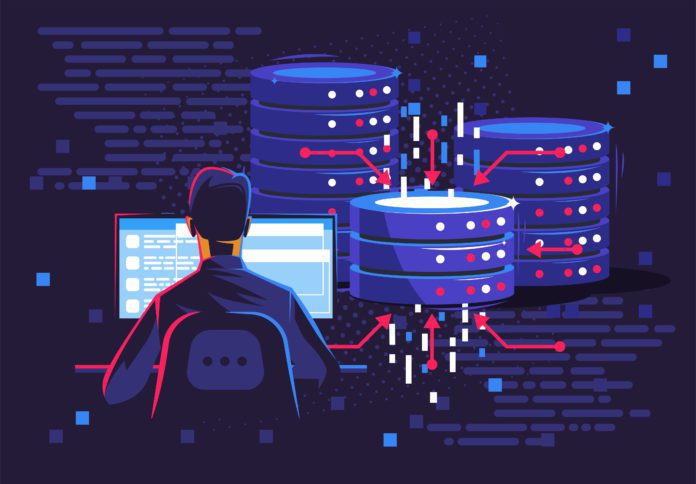Enterprises need databases to manage and manipulate their business data, and they’re looking for professionals who can optimize and monitor their database management systems on an ongoing basis.
As data volumes grow and database technology becomes more complex and crucial to core business functions, companies are facing an escalating need for these database professionals.
The database job market offers many opportunities to the ambitious tech job seeker, and when leveraged strategically, hiring companies can also benefit from database specialists in this growing job market:
A Closer Look at the Database Job Market
Also read: Database Trends
Database market
The database market is expanding in size and offerings, as companies invest in new management systems.
The global in-memory database market reached a value of $5.19 billion in 2020 and is predicted to reach $12.12 billion by 2026, according to a study by Mordor Intelligence.
The global database management system (DBMS) market approached $63.1 billion in 2020 and is expected to reach $125.6 billion by 2026, according to a study by Expert Market Research.
Some companies pick one type of database technology to manage their data needs, but enterprises look for several different types of database technologies because of their data’s variability. The most common kinds of database technology on the market today are relational database management systems (RDBMS), often referred to as SQL databases; non-relational database management systems, often referred to as NoSQL databases; and in-memory databases.
Database job types
Enterprises require experts who can manage a database’s entire life cycle: ideation and design, development and deployment, and ongoing maintenance and optimization.
Database jobs can focus on building and improving internal data management solutions, or they can focus externally on guiding customers through database use cases and best practices.
Some of the most common database-focused roles include:
- Database administrator (DBA)
- Database marketing specialist
- SQL developer
- Database programmer
- Database architect
- Database engineer
- Database modeler
- Database tester
- SQL data analyst
- SQL data scientist
- Database consultant
In many cases, database roles become more specialized to a specific vendor platform or business use case. A few examples include an email database management specialist, a data management platform analyst, or a Salesforce administrator.
Learn more about DBA careers on TechRepublic: Behind the Scenes: A Day in the Life of a Database Administrator
Education for database roles
Companies often expect database professionals to have a bachelor’s or master’s degree in a relevant discipline, such as mathematics, computer science, statistics, or data science. However, most employers are looking for specific database experience and skills from candidates.
Some of the most highly sought after database-focused skill sets are listed below:
- Platform-specific experience (e.g., Microsoft SQL Server)
- Experience with open-source databases, such as Cassandra and MariaDB
- Knowledge of programming languages, like Perl, Python, SQL, and C#
- Proficiency in scripting and automation
- Kubernetes and container technologies experience
- Familiarity with configuration management and automation software
- Experience creating documentation and assisting with database best practices, procedures, and training
- Performance tuning and optimization (PTO) experience
- Basic security management knowledge
- Unix/Linux experience
Expand your database professional skills: 10 Top Database Certifications
Database job openings
Companies across technical and non-technical sectors are hiring for different kinds of database professionals.
For a better understanding of where your skill sets might fit, take a look at this sampling of database-related jobs companies are currently looking to fill, according to LinkedIn:
- Database analyst
- Customer relationship management (CRM) database manager
- Database and audience marketing specialist
- Email marketing database analyst
- Database administrator
- Salesforce administrator
- Director of database marketing
- Database operations engineer
- SQL developer
- Technical writer for database services
- VP of database management and cloud engineering
- IT solutions architect for database management
- Senior software engineer for relational database management systems
For the job seeker who is interested in working for an enterprise, these major companies are currently hiring for database positions:
- Nutanix
- Amazon
- JPMorgan Chase & Co.
- Mercedes-Benz
- Oracle
- Walmart
- Hilton
- VMware
- CVS Health
- EY
- Infosys
- General Motors
Learn about business use cases for database technologies: How Databases are Being Used by Gamepub, UK Cabinet Office, AB Tasty, University of Auckland, and Technical University of Munich
Salaries for database careers
| Job title | Average salary (U.S.) | Salary range |
|---|---|---|
| Database administrator (DBA) | $91,641 | $56,000 - $140,000 |
| SQL developer | $89,579 | $62,000 - $123,000 |
| Database architect | $107,224 | $77,000 - $150,000 |
| Database consultant | $96,266 | $53,000 - $151,000 |
| Database marketing specialist | $52,476 | $40,000 - $78,000 |
Conclusions
The database job market offers a variety of roles, making it possible for professionals interested in data science, programming, and marketing to find a position that will work for them. For certain database roles, like DBAs, hiring organizations don’t always expect you to have a bachelor’s degree, and few of them emphasize a certain educational discipline or background. Organizations are more interested in how candidates have pursued hands-on platform experience and certifications that show their knowledge.
The need for database professionals is growing, and as a result, hiring companies are willing to work with professionals with less traditional data training, making it possible for new graduates and people looking to make a career change to find database-focused work.
Read next: Best Database Management Software



